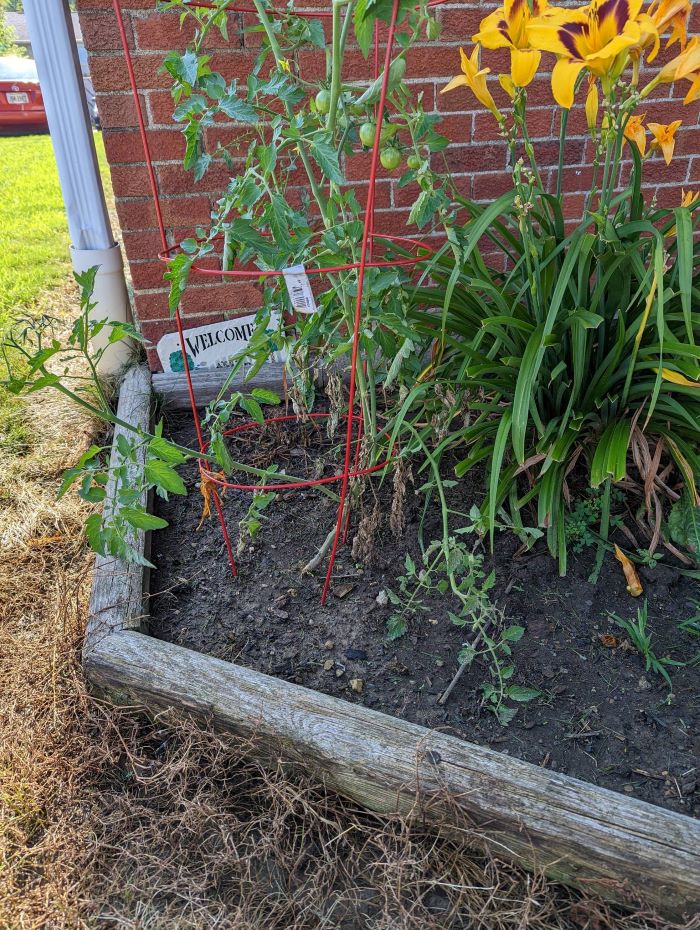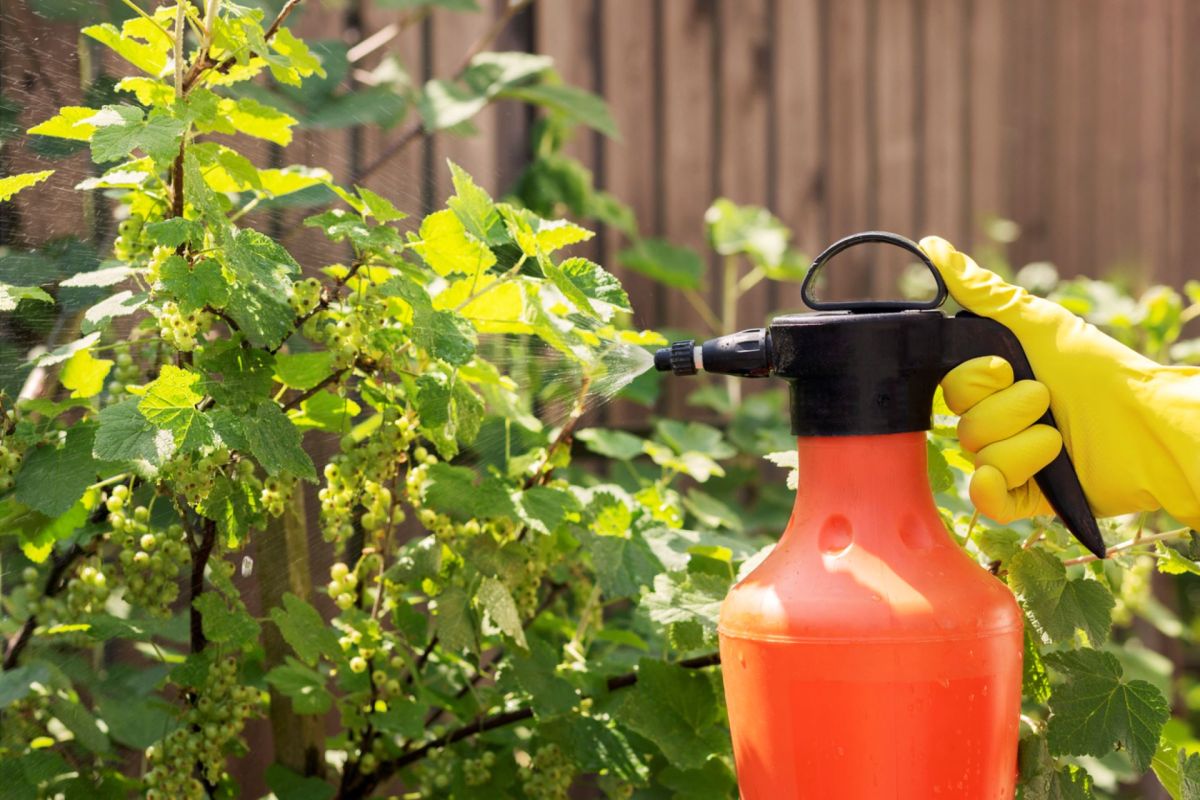A gardener's landlord sprayed toxic herbicide on their carefully cultivated garden beds without warning, inadvertently ruining the entire crop in a single moment. Dismayed, the gardener took to Reddit to question whether or not their tomatoes would be safe to eat.
"I would not be eating them," someone warned.
"Don't even get me started," the poster replied. "He did this last year and then we even had a conversation back in May when I planted to specifically not do this. I'm beyond angry."


The photo shows a healthy, flourishing tomato plant — but one whose days are numbered.
"Tomatoes are incredibly sensitive to herbicides," another Redditor explained grimly. "You'll easily know in about a week or two if even the very tiniest amount got on the plant … the chlorotic patches at the base of leaves are hard to mistake."
Unfortunately, losing a garden bed without warning is not an uncommon occurrence for renters — or even for homeowners with a strict HOA. And with 34% of Americans renting, those incidences are higher than ever.
Landlords and HOAs are both notorious for restricting property changes, maintenance, and upkeep to adhere to strict and seemingly arbitrary standards. One landlord even went so far as to ban indoor plants. And many residents have often been greeted by an unpleasant surprise in the form of unannounced destruction, such as cutting down a tree or tearing up a garden.
Whether done accidentally or on purpose, the effects are permanent, and the resident's efforts — such as buying seeds and maintaining a crop — go to waste.
Many of these changes — such as planting a vegetable garden or hanging laundry lines — would save both the tenant and the landlord money and energy. That's not to mention that these adjustments are usually more eco-friendly and low-impact.
For example, rather than using toxic chemicals to spray the garden beds (pesticides can cause illness from headaches to death), this landlord would have been better off using a natural pesticide or herbicide.
With an HOA, residents can work with the board to ensure positive changes are made.
One person summarized it well: "[That pesticide] should be banned full stop. It's obviously terrible for flora and fauna, but also lazy AF. Just get the weeding tool out like a real gardener!"
Join our free newsletter for easy tips to save more, waste less, and help yourself while helping the planet.









